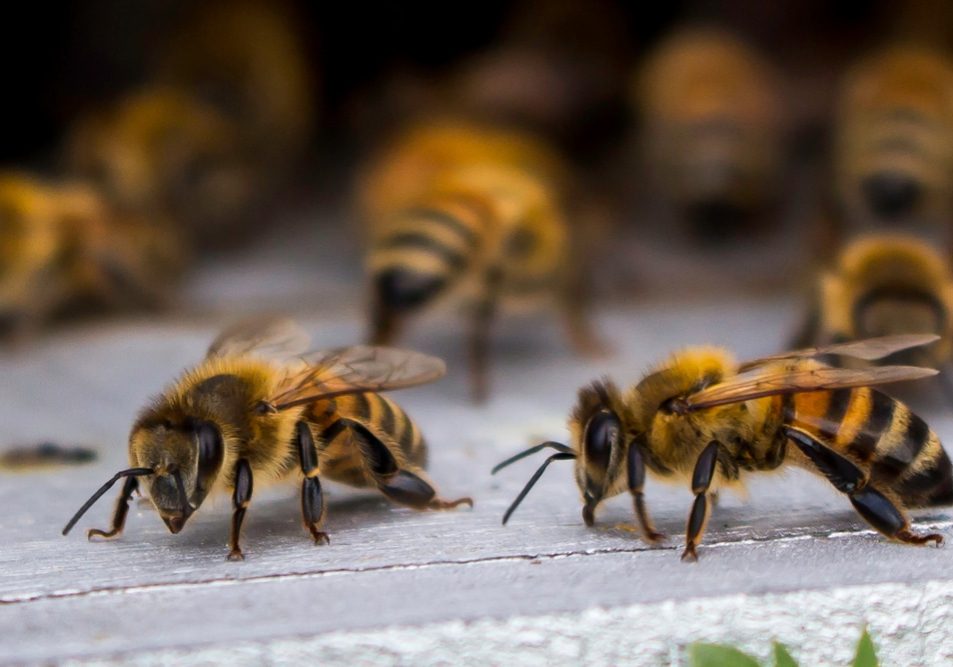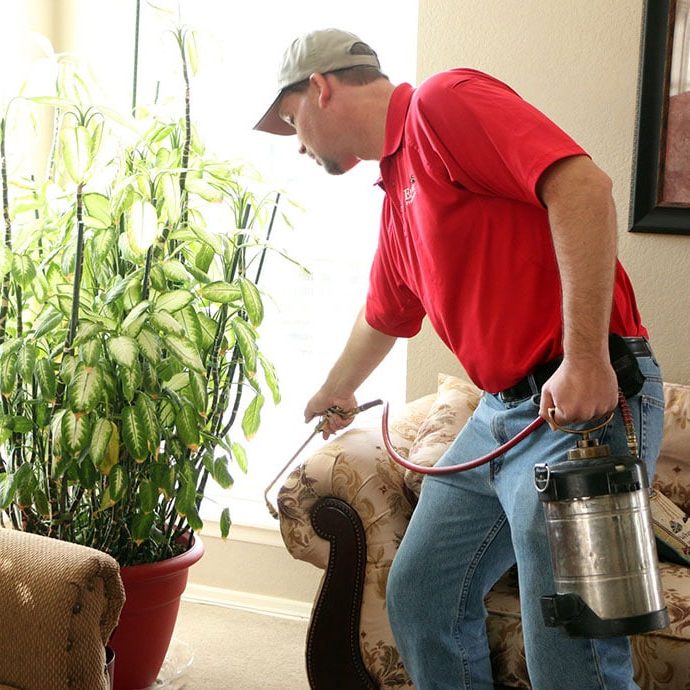Are you sneezing more during certain times of the year? Pests like cockroaches and rodents can make seasonal allergies worse. This article explains how controlling pests might be the key to easing your allergy symptoms.
Discover the connection with Emtec Pest Control.
Common Seasonal Pests That Can Aggravate Allergies
Mosquitoes, cockroaches, rodents, bees, wasps, and ants can exacerbate seasonal allergies. They spread allergens and toxins, triggering asthma and allergy symptoms.

Mosquitoes aren't just annoying; they play a big part in making seasonal allergies worse and can even set off asthma symptoms for lots of folks. Their bites are more than an irritation – for people who are really sensitive, they can cause serious allergic reactions, sometimes as severe as anaphylaxis.
But it's not only about the itchiness. These bugs also spread diseases like the West Nile Virus, upping the health risks.
Where do these pests come from? They love standing water because it's perfect for laying their eggs. Getting rid of such stagnant water spots around your place is a smart move to cut down on mosquito numbers and lessen your chances of running into allergens.
Now that we've tackled mosquitoes, let's shift our focus to another pest known to stir up allergy issues: cockroaches.
Cockroaches significantly impact seasonal allergies and asthma for many individuals. These pests carry allergens that can cause severe allergic reactions when they enter homes. Their presence is more than just annoying; it also endangers health by worsening indoor air quality and spreading diseases.
To reduce these dangers, homeowners should take steps like sealing any cracks to prevent them from getting in, keeping their homes clean to deter infestations, and using professional pest control services for effective removal.
Making sure your home is free of cockroaches is vital in safeguarding your family's health during allergy season.
Bees and wasps can cause severe allergic reactions through their stings, with symptoms such as swelling, hives, and anaphylaxis. To avoid these issues, it's important to find and remove their nests, keep food containers sealed outdoors, and refrain from wearing strong fragrances or bright-colored clothing that may attract them.
Preventing bees and wasps from nesting on your property is crucial for managing seasonal allergies while ensuring the safety of your family. Professional pest control assistance can help identify potential nest locations early on and implement targeted solutions for long-term prevention against these allergen-triggering pests.
Rodents, like mice and rats, aren't just uninvited visitors in your house. They bring allergens with them that can significantly affect those who suffer from seasonal allergies or have asthma.
Their droppings, urine, and dander can blend with the dust in your home, polluting the air quality indoors and setting off allergy symptoms or even asthma attacks for people who are sensitive to it.
Furthermore, rodents often gnaw through materials to make nests, spreading these harmful particles around your living space even more.
Making sure your home is impenetrable to these creatures is essential. Look for any cracks or openings along walls and foundations where rodents might squeeze through. Adopting regular pest control practices can also help keep these critters away, minimizing the risk of allergen dispersion within your house.
Now let's move on to exploring how bees and wasps contribute to worsening seasonal allergies.
Ants in your home go beyond being a kitchen annoyance; they can worsen allergies. They carry allergens, contaminating indoor air and triggering asthma and allergy symptoms. Professional pest control treatments effectively eliminate ant infestations and prevent them from worsening seasonal allergies.
Regular pest inspections help catch ant infestations early, sealing entry points keeps them out, and maintaining a clean home discourages ants from making themselves at home. This approach effectively manages ant-related allergy triggers while keeping your home free from these pesky pests.
Preventing Pests to Alleviate Seasonal Allergies
Preventing pests to alleviate seasonal allergies includes regular pest inspections, sealing entry points, proper food storage, removing standing water, keeping a clean and clutter-free home, and professional pest control treatments.
Learn how these preventive measures can make a difference in managing seasonal allergies by looking below.

Importance of Professional Pest Control for Managing Seasonal Allergies
Professional pest control is essential for managing seasonal allergies due to its expertise in identifying and eliminating pest infestations. It ensures safe and effective pest control methods, leading to the long-term prevention of pest-related allergies.

Skilled pest control professionals can accurately identify and eliminate a wide range of pest infestations. With in-depth knowledge of pest behavior and biology, we pinpoint the source of the infestation and tailor a targeted approach for eradication.
Using advanced techniques and tools, we efficiently remove pests from your home while minimizing disruption to your daily life. Our expertise ensures that not only the current issue is addressed but also proactive measures are taken to prevent future infestations, providing you with peace of mind.
Additionally, our team's expertise extends beyond just eliminating pests; we offer valuable advice on preventing future infestations in your home. From identifying entry points to recommending effective sanitation practices, our comprehensive approach goes beyond mere eradication to ensure long-term protection against seasonal allergens associated with household pests.
At Emtec Pest Control, we are committed to safe and responsible pest control. We understand that your family’s safety is your number one priority, so we make it our priority, too.
If you have any other questions about any of these pests or pest control for your home or business, contact your Oklahoma pest control experts at Emtec Pest Control by calling us or by filling out our online contact form.
